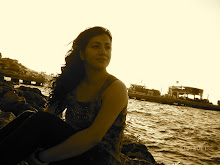Little Mosque Honored for Humanizing Muslims
| By Farah Akbar, Islamonline.net Correspondent |
Thu. Jun. 21, 2007
Nawaz, a broadcaster, freelance writer, filmmaker and mother of four, fights stereotypes using humor.
NEW YORK — In recognition of her efforts to help paint a down-to-earth and more accurate portrayal of Islam and Muslims, the Muslim Public Affairs Council (MPAC) will honor Zarqa Nawaz at their annual Media Award gala On Friday, June 29, in Los Angeles.
"Little Mosque on the Prairie is the first of its kind," Edina Likovic, MPAC's Communications Director and a member of the nomination committee, told IslamOnline.net.
"Whenever Muslims exist in media, they are seen as one-dimensional, and 9 out of 10 times they’re the bad guy," she said.
In a post 9/11 world, linking Muslims with terrorism and fundamentalism seems to be the norm rather than the exception in Western media.
Nawaz, the creator of the hit Canadian sitcom, has an unorthodox way of fighting these stereotypes: using humor.
Nawaz, a hijab-clad broadcaster, freelance writer, filmmaker and mother of four, was inspired to create the show by her own experience, having visited mosques often while growing up and getting married in one.
After moving to a small town in Canada, the 39-year-ol practicing Muslim witnessed the close ties that congregants had with one another in the local mosque.
She decided to highlight these relationships with a comedic touch.
The scene is set in the fictional prairie town of Mercy, Saskatchewan, where a small community of Muslims set up a mosque and experience life’s pleasures and tribulations.
The show, which aired in January, was one of the most talked about sitcoms drawing an audience of about 2 million views during its pilot episode.
MPAC, a public service organization, works to protect civil liberties, counter Islamophobia and build bridges between Muslims and non-Muslims.
Since 1991, it has honored artists, producers, writers and actors for their contributions to helping promote these ideals, including tolerance and diversity.
Humanizing Muslims
Many believe the hit Canadian sitcom has helped "normalize" Muslims in the eyes of the other.
"I think the show has caused people to question their assumptions about Islam," said Likovic.
"It is an opportunity to see Muslims as having the same concerns as other people, like school, relationships and family life. I think it is surprising to people because it is so normalizing."
The show portrays the interactions between conservative Muslims and those on the more liberal end.
The character Baber, a conservative Pakistani-Canadian in his fifties, is an economics professor and father of a teenage daughter.
The relationship between him and his daughter depict the struggle that many first generation children have with their parents: balancing Islamic traditions with Western culture.
On one episode, an embarrassed Baber explains to a recent convert of Islam why his daughter does not wear the hijab, saying that the wind blew it off her head.
The scene continues as the daughter exclaims "Dad, for the nine zillionth time, I’m not wearing it!"
Baber then blames teenage hormones for his daughter’s apparent lack of faith.
Then there is the young and liberal Amaar Rashid.
After having a religious epiphany, he abandons his law practice and moves to Mercy to serve as the mosque’s imam.
In one episode, Amaar is arrested at the airport under suspicion of terrorist activities, prompting him to ask officials: "What’s the charge? Flying while Muslim?"
Another episode shows the congregants arguing about the sighting of the moon to determine the start of the holy fasting month of Ramadan.
Baber insists that the moon be seen with the naked eye while others suggest using more advanced methods, such as a telescope or simply checking moon sighting times on the Internet.
Likovic, the MPAC official, believes that "Little Mosque" will have the same impact on Muslims just as the long-running comedy "The Cosby Show" did with humanizing the African-American experience with the rest of America.
"The Cosby Show," which ran in the 1980’s, was one of the most successful sitcoms on television.
It depicted a stable, upper-middle class African American family, unseen on TV before.
Just as "The Cosby Show" shattered many racial stereotypes about African Americans, Likovic hopes the same will happen with stereotypes about Muslims.
"It is a groundbreaking show," says Likovic. "I hope it continues to expand."

No comments:
Post a Comment